The A-series, along with the M-series, have worked wonders for Samsung in taking back market share and propelling the Korean brand as a favourable option for low-cost smartphones. Over the past few years, Samsung’s mid-range and budget phones were being outsold by the likes of Xiaomi, Oppo and the likes. The reason was primarily better performance, eked out from new chipsets and better cameras. Since the beginning of 2019, Samsung has been playing the same game by introducing new features and hardware at competitive prices. The Samsung Galaxy A50s is the latest addition to that lineup. It replaces the Samsung Galaxy A50, which also launched this year. That’s how quick Samsung has become in replacing its portfolio. But is the Galaxy A50s worth the money? Let’s find out —
Performance
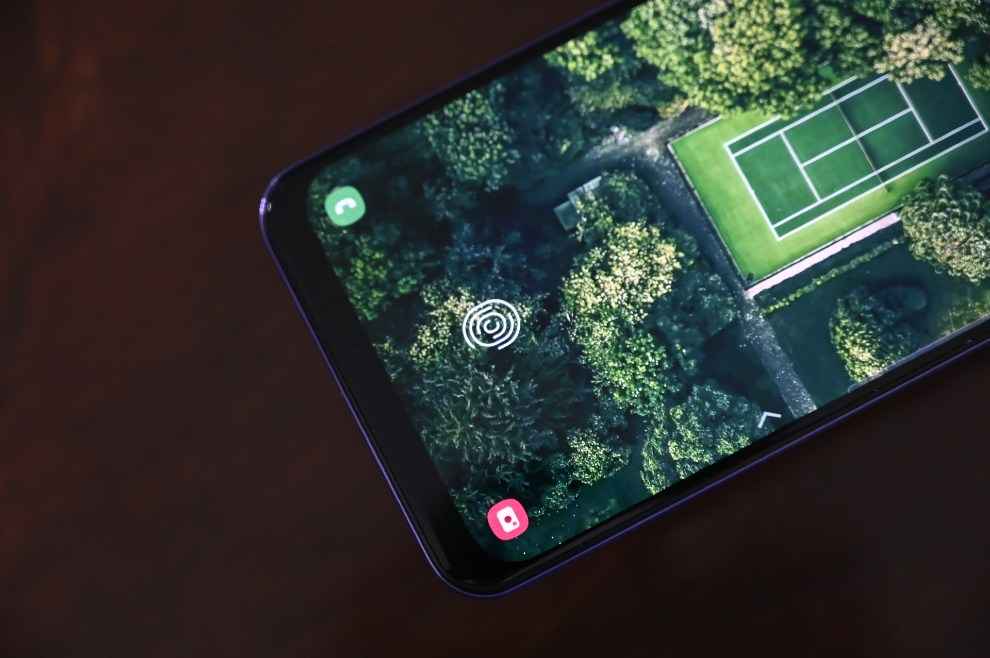
Samsung continues to pack new Exynos chipsets with its A-series phones. The A50s this time comes with the Exynos 9611. It’s based on a 10nm platform, which gives it the edge in power efficiency over the competing Qualcomm SoCs, at least on paper. There are four Cortex-A73 Cores at 2.3GHz and 4 Cortex-A53 at 1.7GHz, offering a good mix of performance and efficiency in that price-range. The phone is offered in 4GB and 6GB RAM with up to 128GB UFS 2.1 storage.
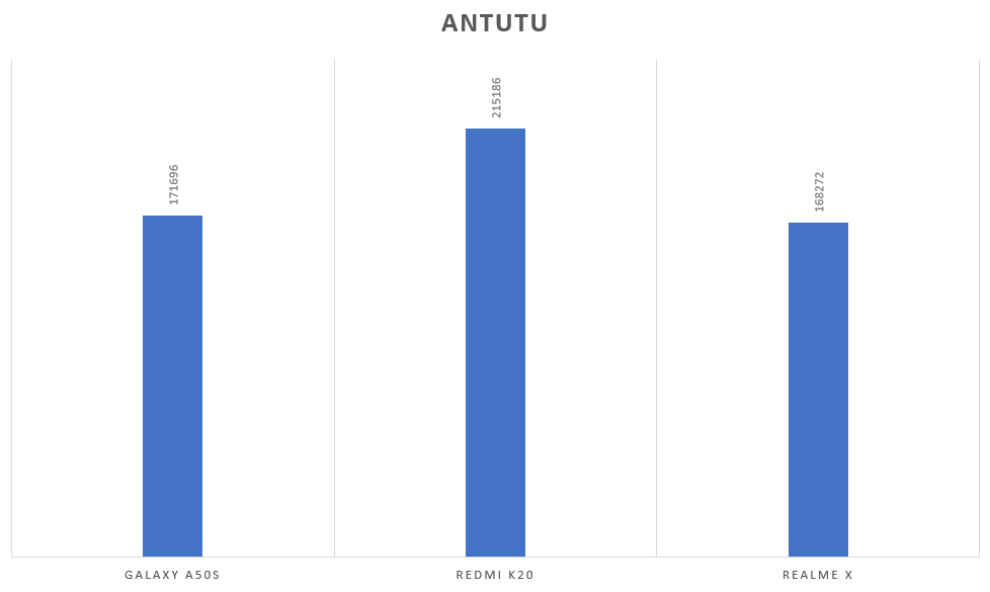
On paper, the A50s feels like a good performer. This is confirmed in the benchmark results. On AnTuTu, the Galaxy A50s scored 171696, similar to the Redmi Note 7 Pro but not as much than the Redmi Note 8 Pro. It’s also close to the scores achieved by the Realme X, and much higher than the Galaxy M30.
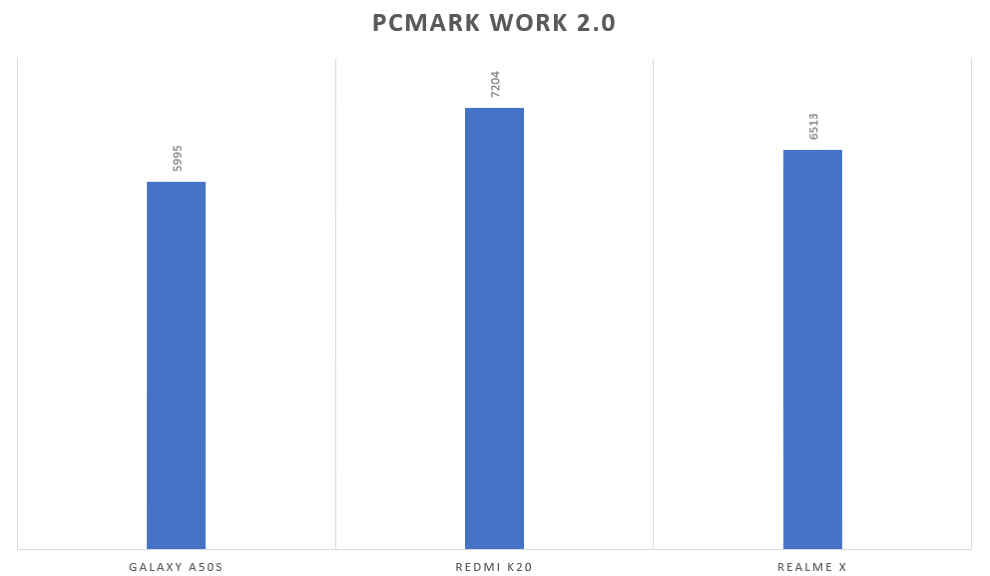
With Geekbench 5 released, scores from Geekbench 4 (which was used to test older devices launched this year) are not comparable. So we looked at PCMark Work 2.0 scores to get an idea of real-world performance. It turns out, despite a high AnTuTu score, the Galaxy A50s lags behind on PCMark Work 2.0.
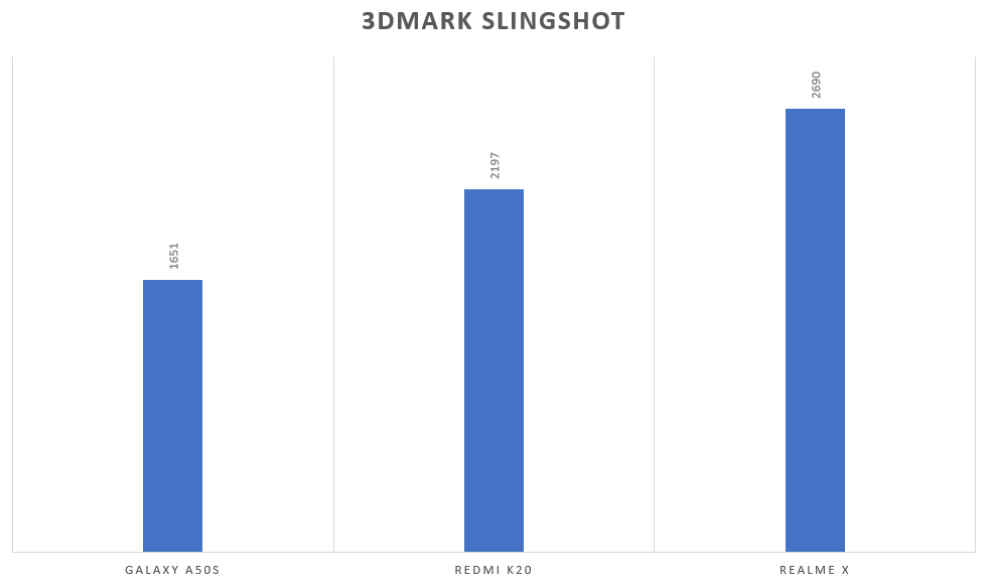
As for graphics, the Exynos 9611 packs a Mali-G72 MP3 GPU which also competes fairly well with the popular Adreno GPUs in Qualcomm SoCs. The A50s outscored most of the other M-series and A-series mid-rangers that Samsung launched, and came close to beating the Redmi Note 7 Pro and the Realme X.
In the real-world, the Galaxy A50s did feel quite smooth during use. I wouldn’t call it fast, but at least it didn’t feel sluggish out of the box. The transitions are smooth, but scrolling in heavy apps like Facebook is not as smooth as the Redmi K20. There is also a noticeable lag between pressing the power button and the lockscreen showing up, and that’s primarily because Samsung thought it’d be a good idea to change the wallpaper of the lockscreen every time you wake the phone up using content served by a third-party. I have a feeling it’s only going to get slower over time. The on-screen fingerprint sensor also takes longer to unlock as compared to the Redmi K20 which is similarly priced.
While the Galaxy A50s is good enough for accomplishing your regular tasks of browsing social media, gaming is not something it’s particularly proficient in. On Gamebench, the Galaxy A50s clocked 28 FPS with 87 percent stability and even on PUBG Mobile, it clocked 29 FPS with 89 percent stability. These are numbers most mid-range phones will offer, but if you play with all the settings maxed out, the A50s will feel really sluggish.
Software
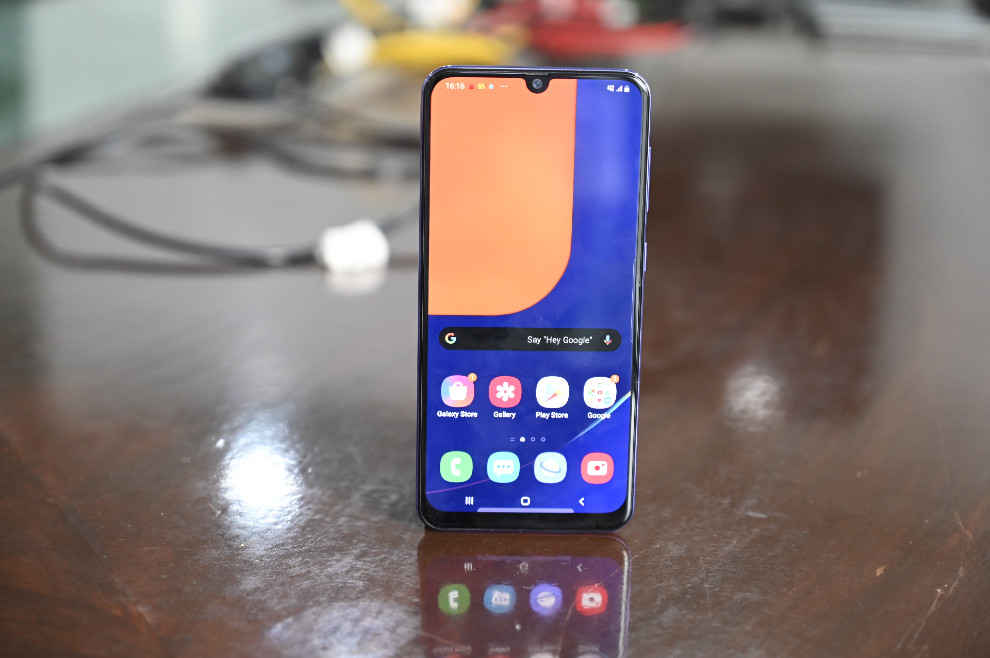
The Samsung Galaxy A50s runs on OneUI based on Android 9. It’s a massive improvement over the previous Experience UI in how the icons look, the transitions and the overall stability of the UI. It’s also far more intuitive, but it’s the presence of a number of additional apps from Samsung that somewhat mars the experience. For one, these apps cannot be uninstalled. Even more frustrating is the number of notifications they flood you with. Furthermore, the wallpaper carousel in the lock-screen takes away from the experience more than it enhances it, but that’s just my personal opinion. These features are just as invasive as serving ads in the UI.
Battery Life
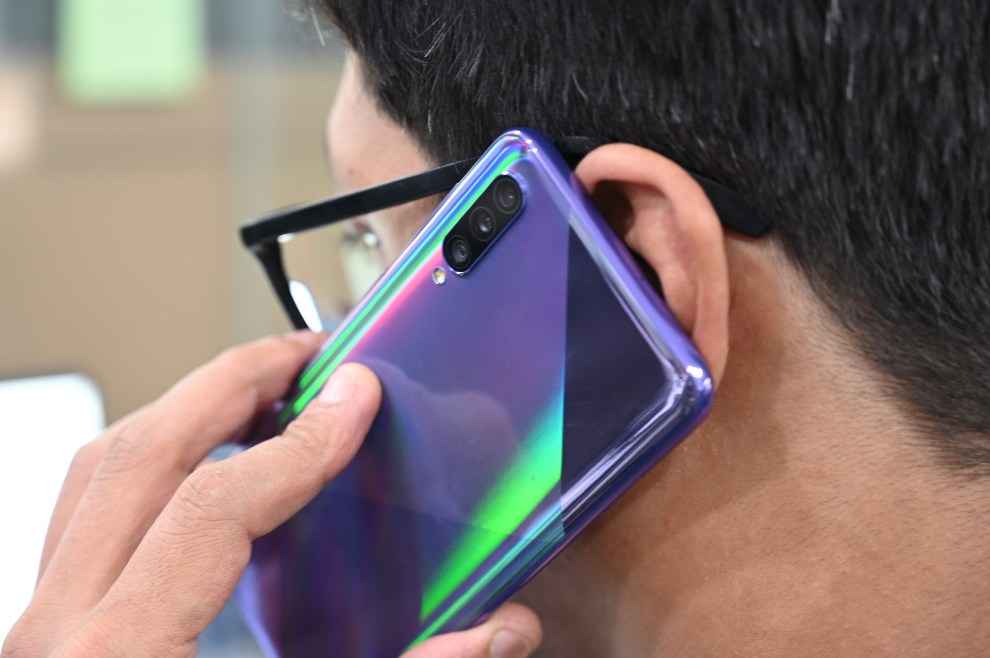
The Samsung Galaxy A50s rocks a 4000mAh battery despite maintaining a slim and light profile. The battery life is also pretty impressive with the A50s easily lasting well over a day under moderate to heavy use. On PCMark Battery Test, the A50s lasted 9 hours 16 minutes which is indicative of a long battery life. While playing PUBG Mobile, the battery drained by 4 percent while 30 minutes of Netflix drained the battery by 7 percent. It seems the combination of a 10nm chipset and a 4000mAh works in tandem to deliver a long battery life.
The Galaxy A50s also comes with a 15W fast charger that takes around 2 hours to top up the phone. It’s not as fast as VOOC charging on the Realme phones, however.
Camera
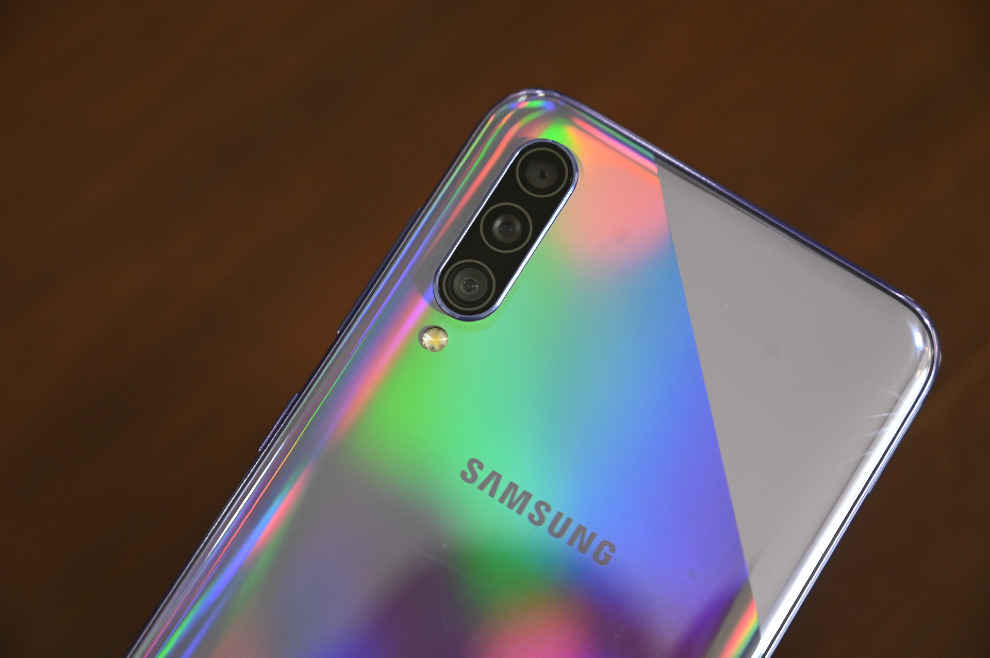
While high performance is not something mid-range Samsung phones are known for, the camera is what most people expect Samsung to get right. With the A50s, Samsung is offering quite a options to shoot. First, there is a 48MP primary shooter which can shoot in both 48MP and in the binned 12MP resolution. Then there’s another 8MP ultrawide sensor along with a 5MP depth sensor.
Here are few shots we took with the Galaxy A50s —
Primary Camera (48MP, 1/2" sensor, 0.8-micron pixel pitch, f/2.0 aperture)
In 12MP
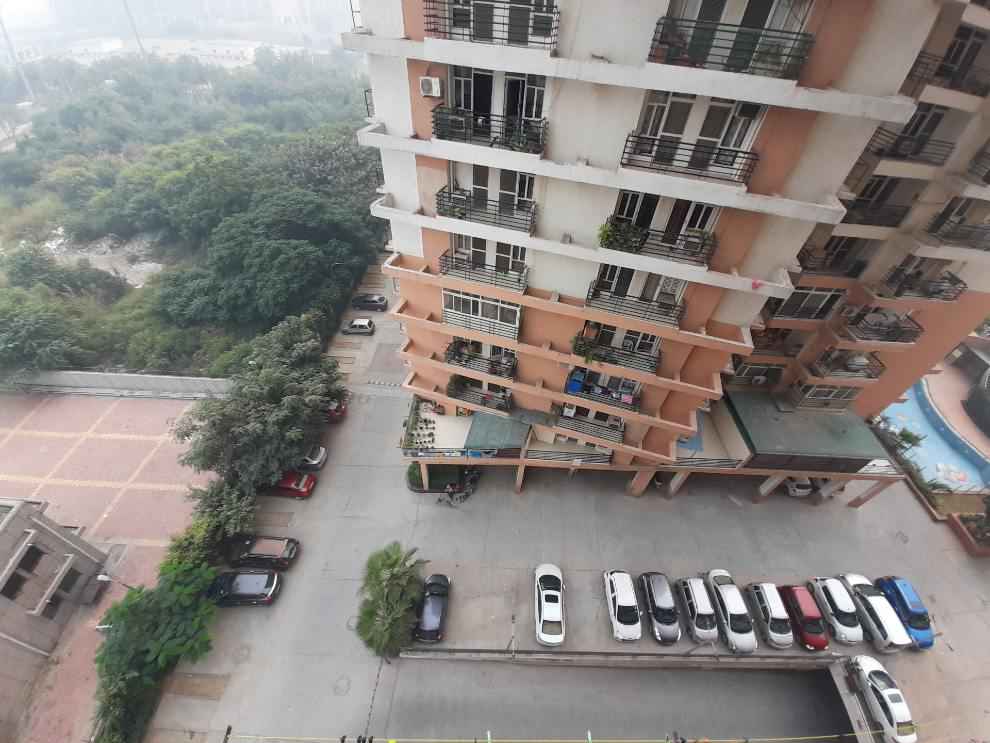

Photos in the default 12MP resolution from the primary lens come out fairly sharp and well-detailed. In the samples above, the warm tinge is primary due to the sun pouring through the haze. The camera in the 12MP mode is also fast to capture the shot but the autofocus primarily adjusts the exposure instead of locking in on a subject. The close-up photo below is a good example where the phone couldn't lock in the focus on the flower and the resulting details look soft.

Shot in 48MP
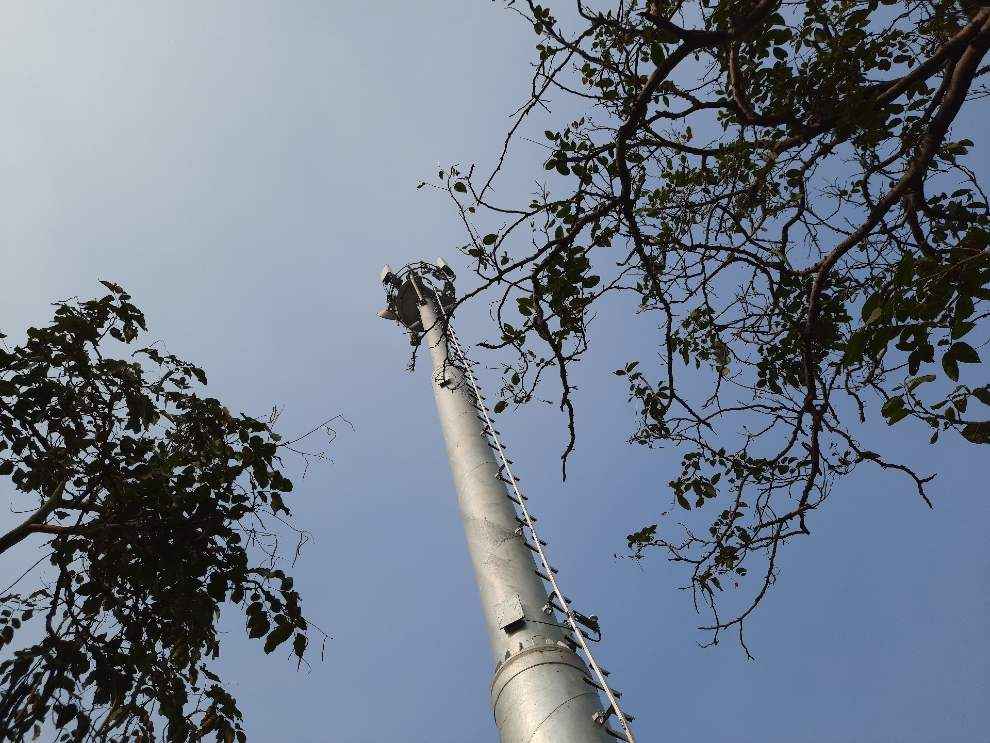
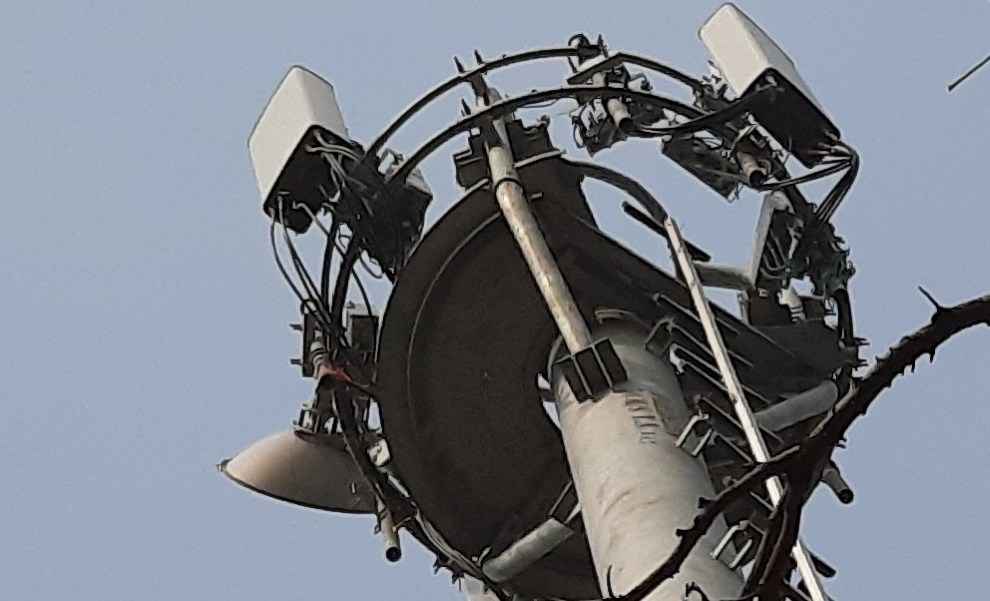
100 percent crop


100 percent cropped
In the 48MP mode, the scene recognition algorithm doesn't work, so you might find the high-res photos a bit bland. Having said that, the details that the 48MP camera produces is pretty impressive. Faraway objects, including text, was easily readable.
Wide-angle lens (8MP, f/2.2)
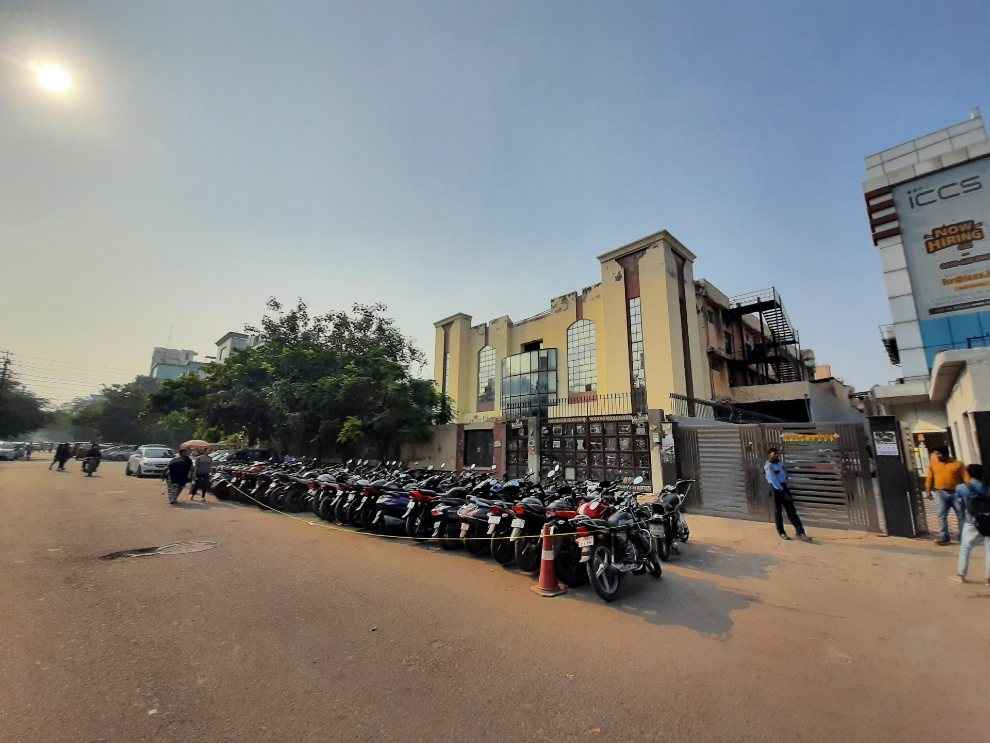
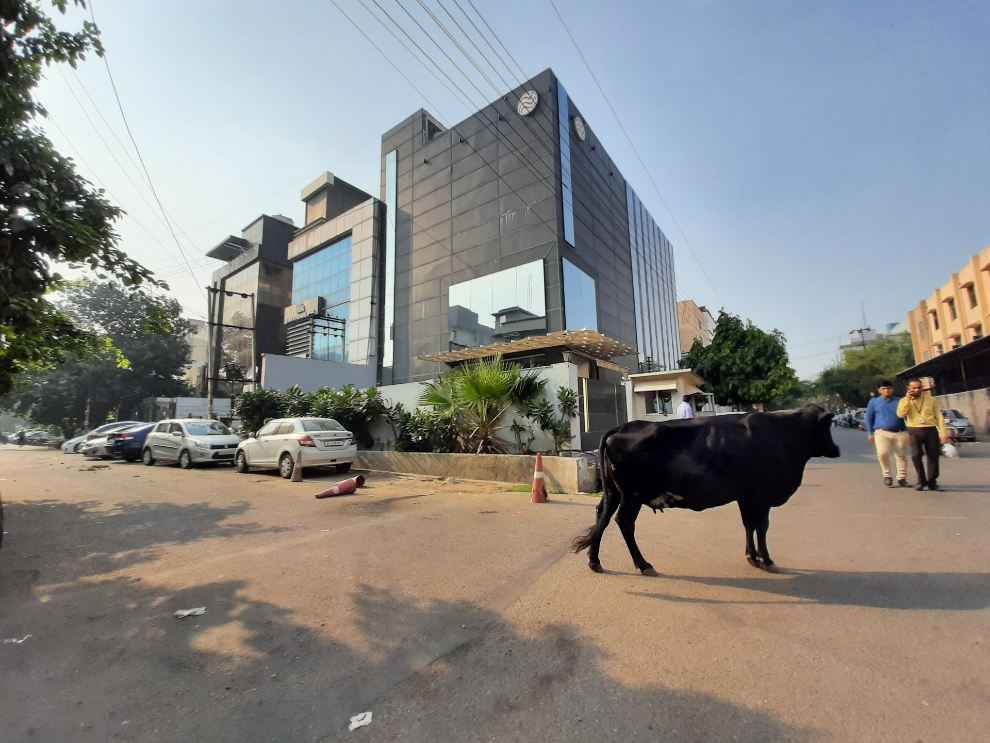
The camera on the Galaxy A50s is not the fastest out there, but the images it clicks are pretty sharp and well-detailed. The colours in the photos are especially vibrant and it manages to bring out both the colour of the sky and the buildings with a good balance. The wide-angle lens is not very helpful in the evening. Night mode does not support the wide-angle lens and even in the day, the wide-angle lens tends to distort objects nearby to a great degree.
Design and display
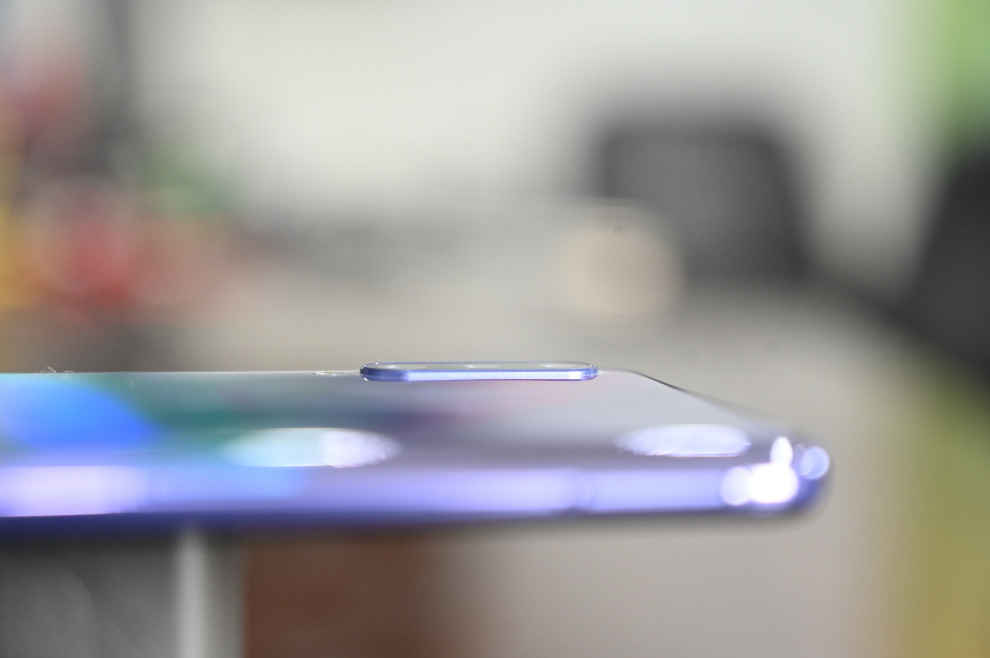
One thing that we had to give Samsung is their ability to design good-looking phones. The A50s is one of the lightest and slimmest smartphone to hold and use. It also looks just as cool as the Redmis and the Realmes with its diamond-cut gradient design. The A50s uses a small waterdrop notch to house the front camera and there are minimal bezels around the edges. The camera module doesn’t have a big bump either and overall, it’s really ergonomic and can be used one-handed. However, owing to the plastic build of the phone, durability remains a concern. Samsung has not specified whether the display on the phone comes with Gorilla Glass protection.
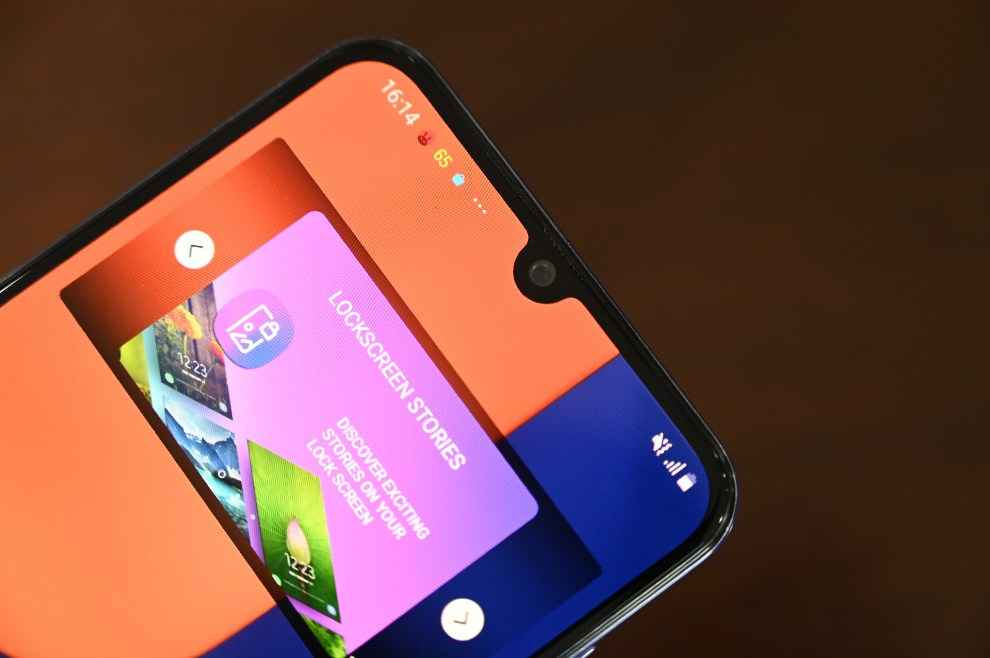
Speaking of the display, it’s a 6.4-inch AMOLED display with FHD+ resolution. It’s not as bright or vibrant as the panels on the Samsung flagships but high-definition content look good on the display, whether you are playing from Netflix or YouTube. HDR is something you might miss considering phones priced similarly have now made it a must-have feature. The panel has good colour depth and doesn’t show banding in videos.
Bottomline
The Samsung Galaxy A50s isn’t the best performer in the upper mid-range segment, but if you are looking for a phone that looks good and handy to use, the A50s is a good option to consider. It also comes with a reliable camera system. The primary 48MP camera is optimised to shoot well-detailed, vibrant images in the day, but not much useful once the sun sets. OneUI based on Android 9 also goes a long way in making the Galaxy A50s highly usable with a lot of features borrowed from the flagship S-series, but keep in mind that if gaming is what you are after in a phone, this is not the best option.
[ad_2]
Source link

Post a Comment